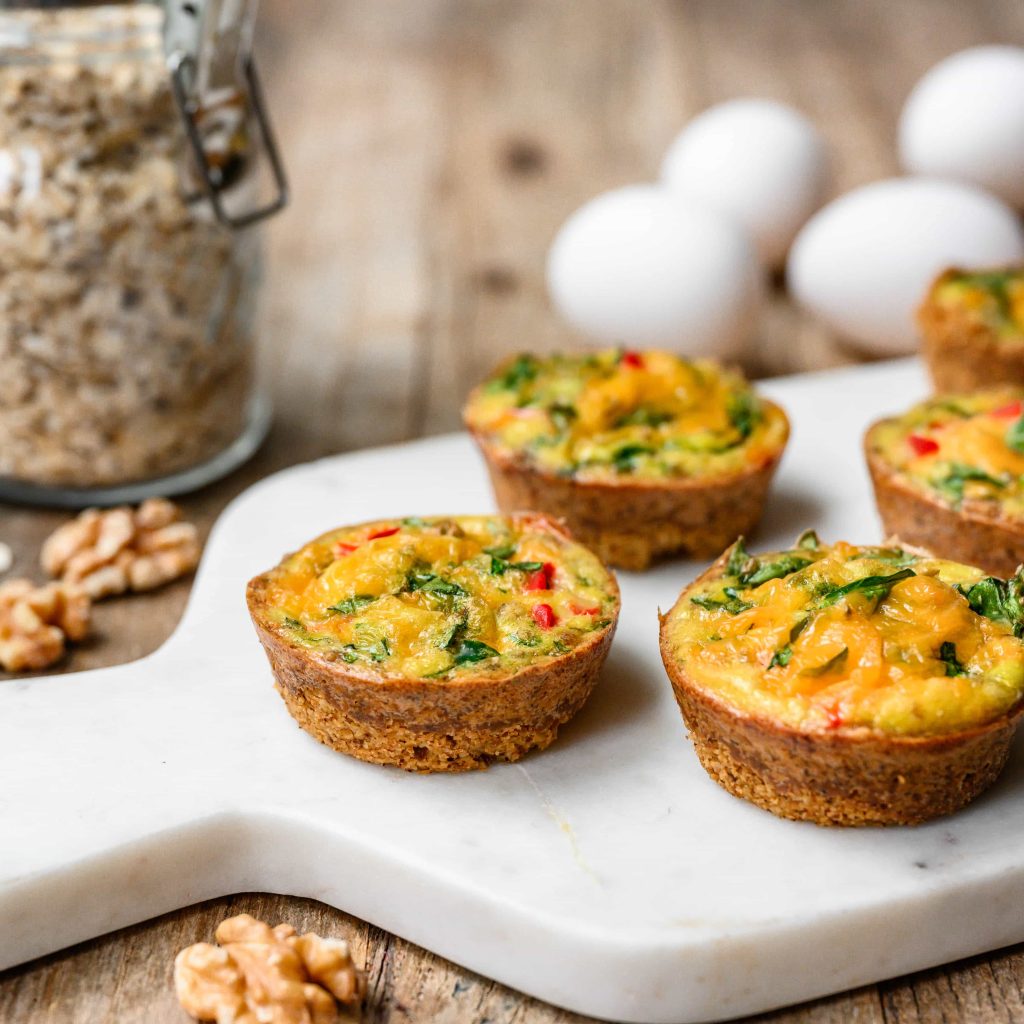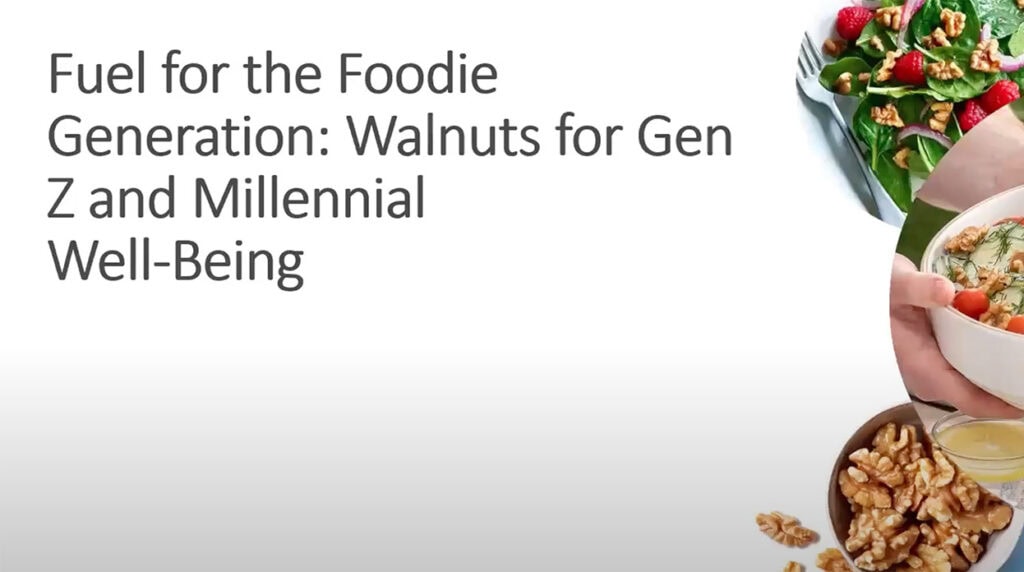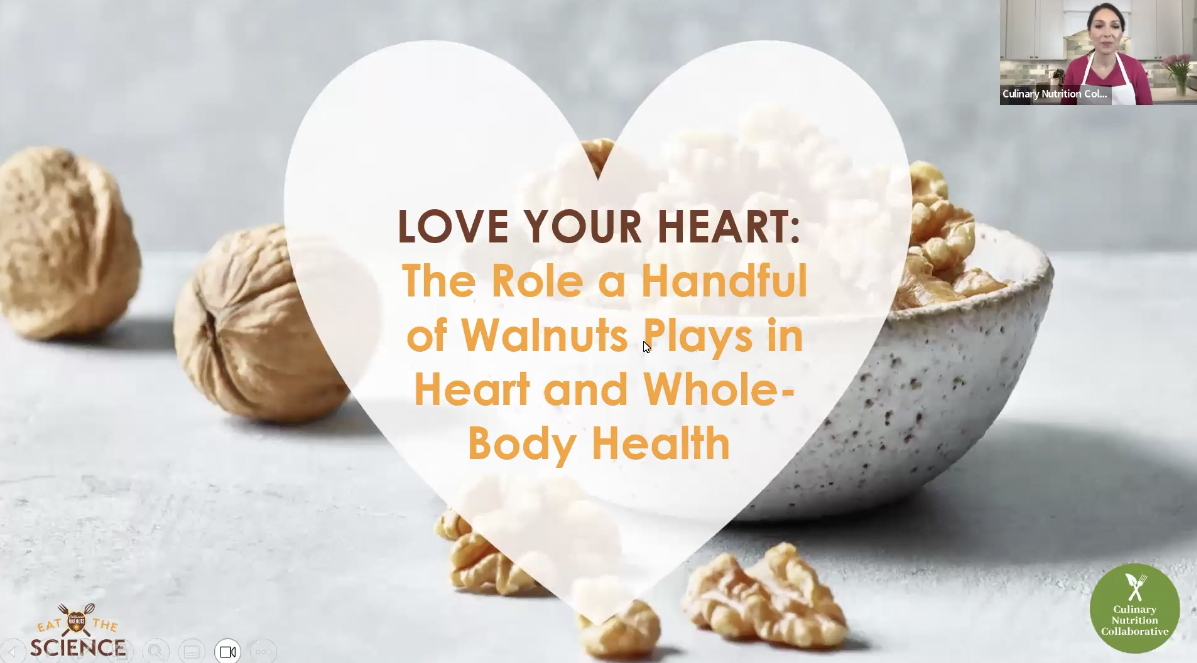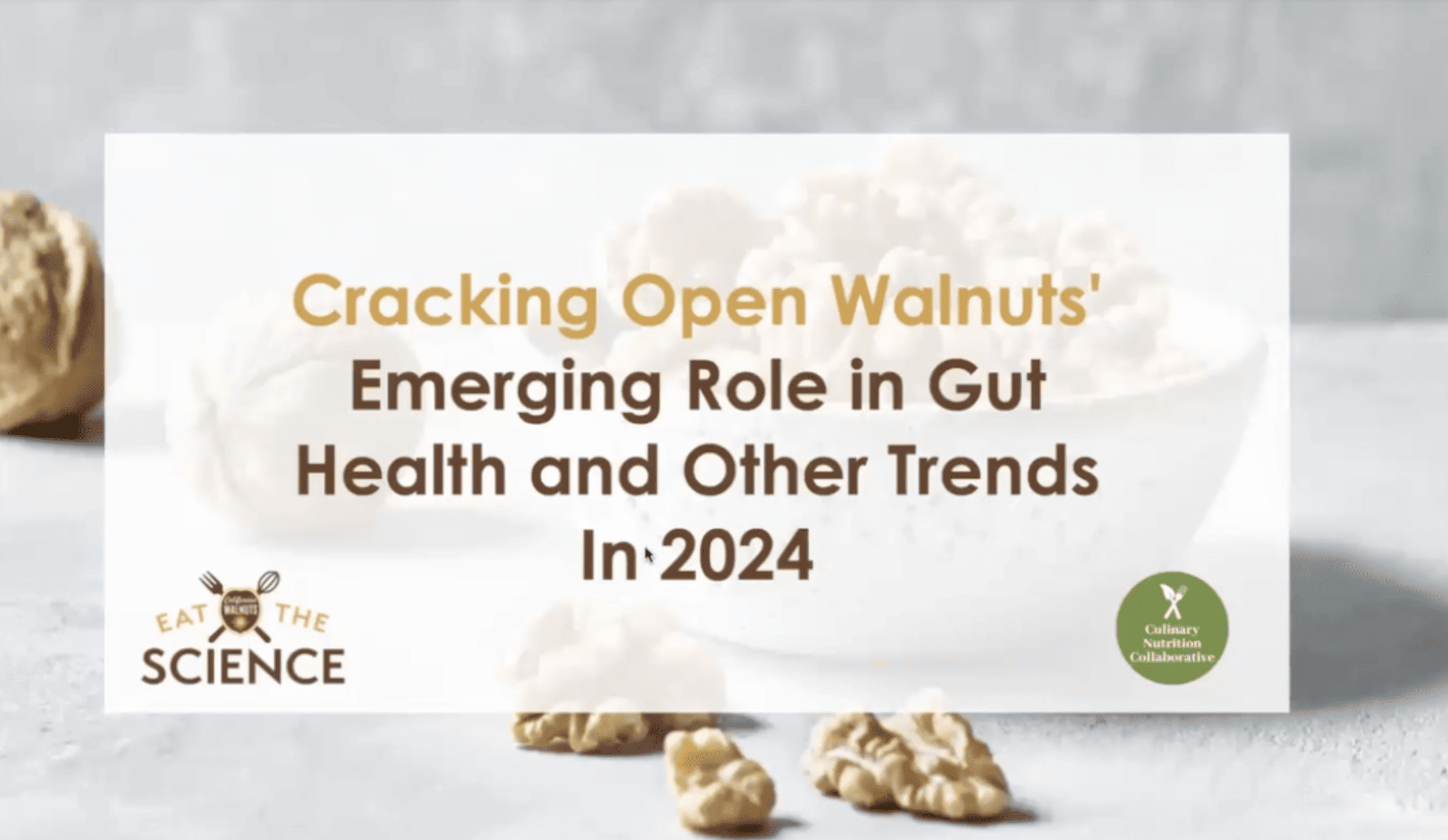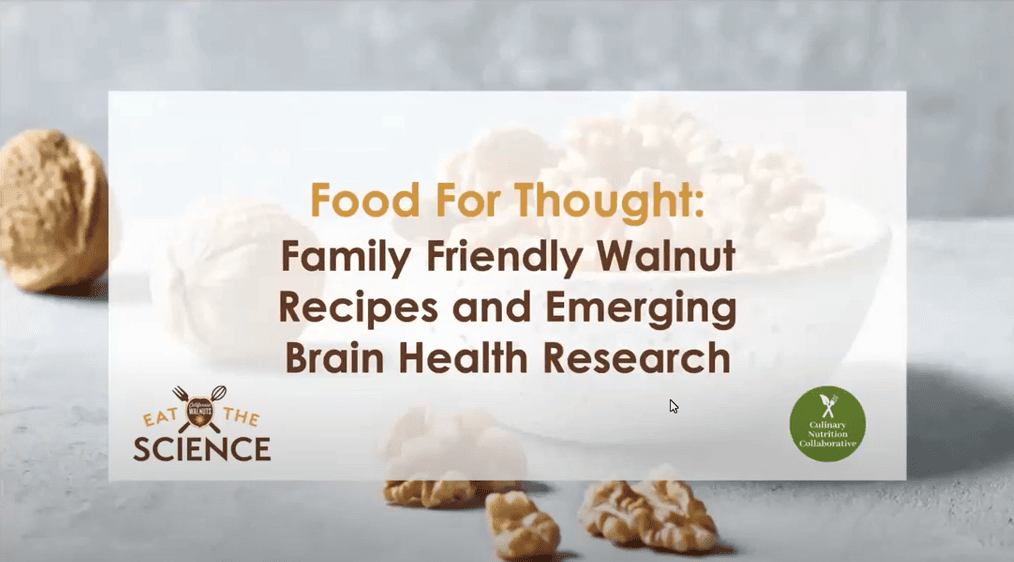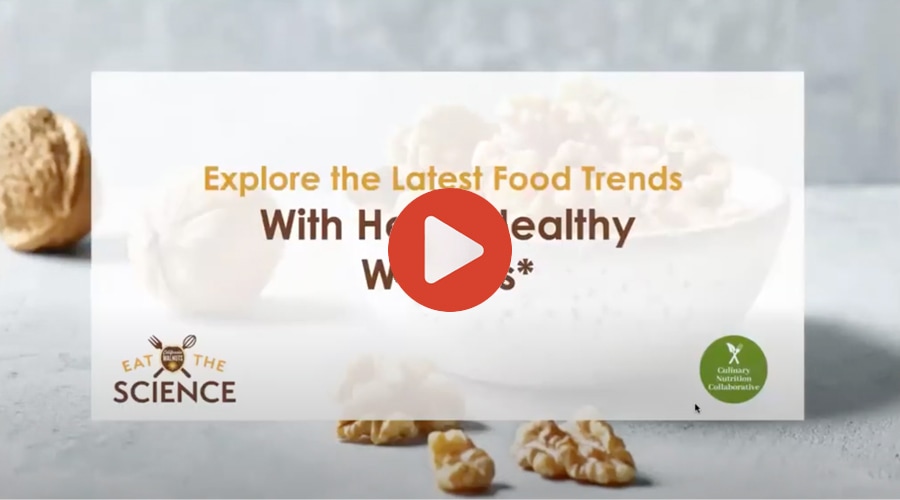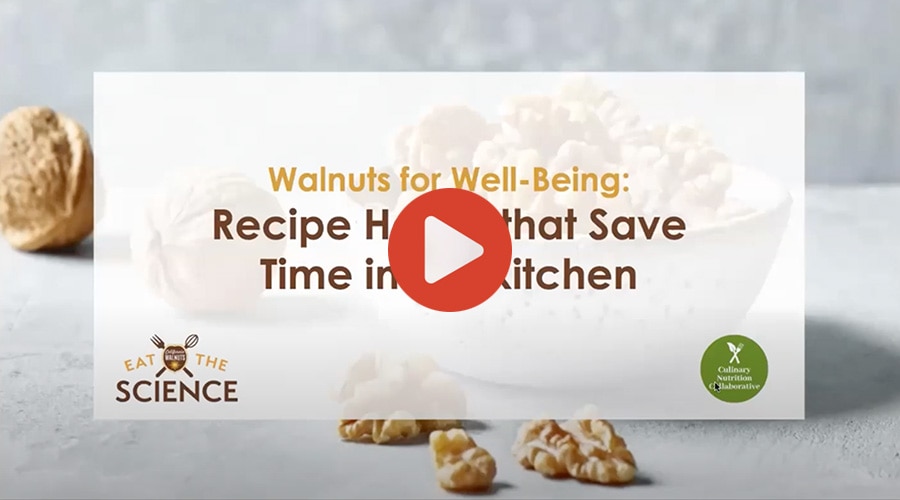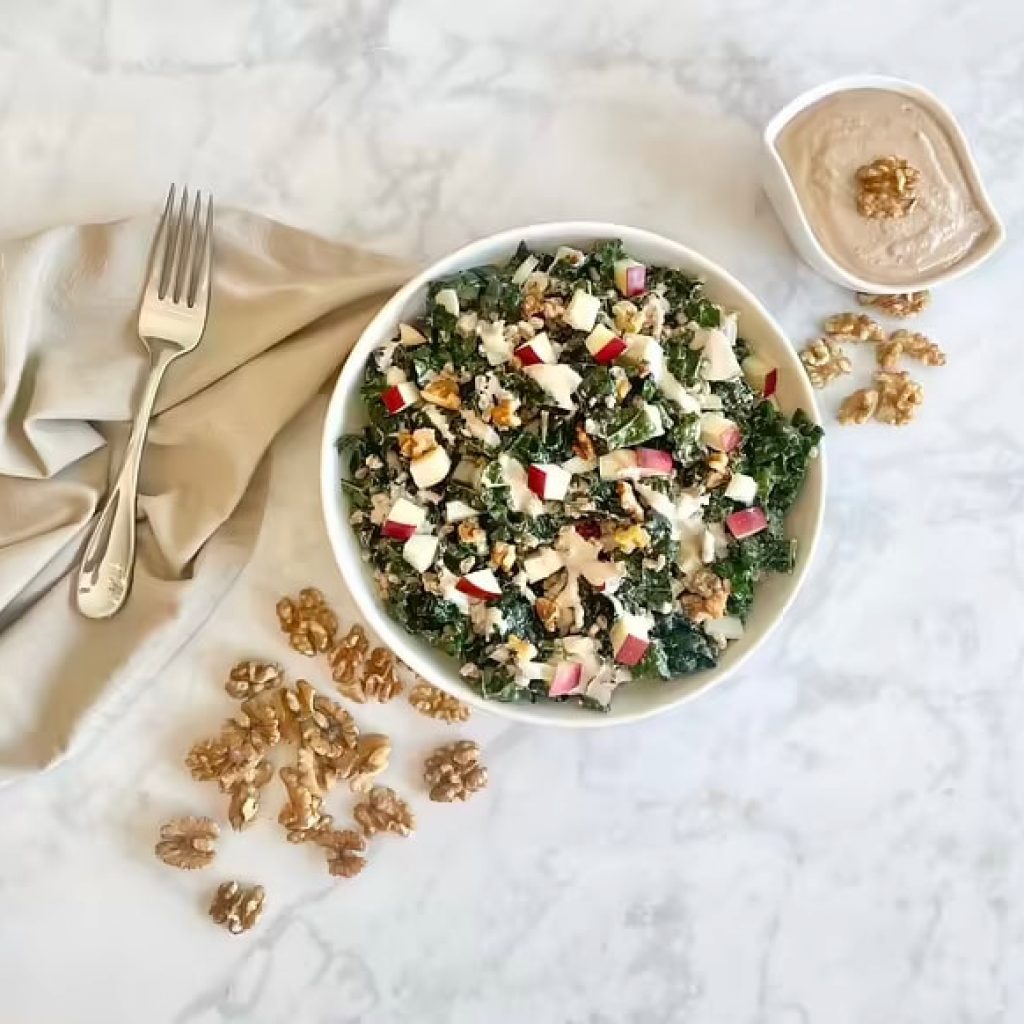
What’s better than learning about the latest evidence-based health benefits of walnuts? Cooking (and eating) while doing it! The Culinary Nutrition Collaborative is back in 2026 with “Eat the Science” to bring the latest walnut health research to life through new and on-trend culinary applications. The California Walnut Commission is a proud commercial supporter of this series now in its fourth season.
Join chefs and registered dietitians Kristy Del Coro, MS, RDN, LDN and Jackie Topol, MS, RD, CDN, CLT, co-founders of the Culinary Nutrition Collaborative for live demonstrations on the latest cooking and preparation techniques that incorporate walnuts and new guest experts who will dive into the innovative research investigating the impact of walnut consumption on optimal health and feeling good.



